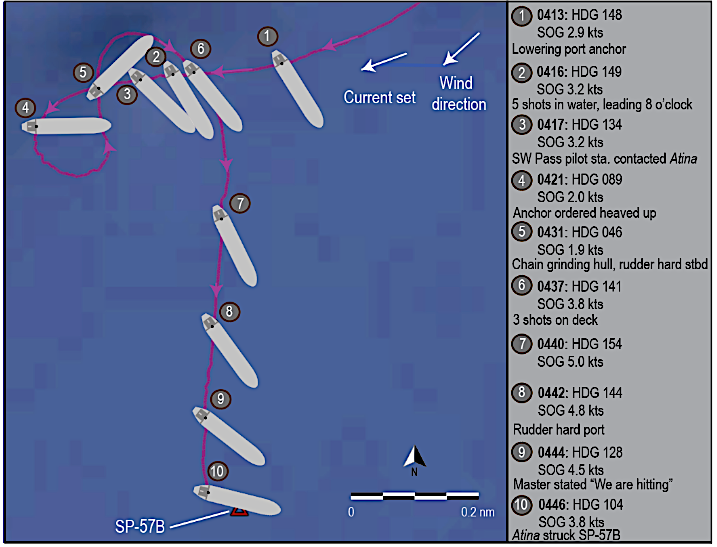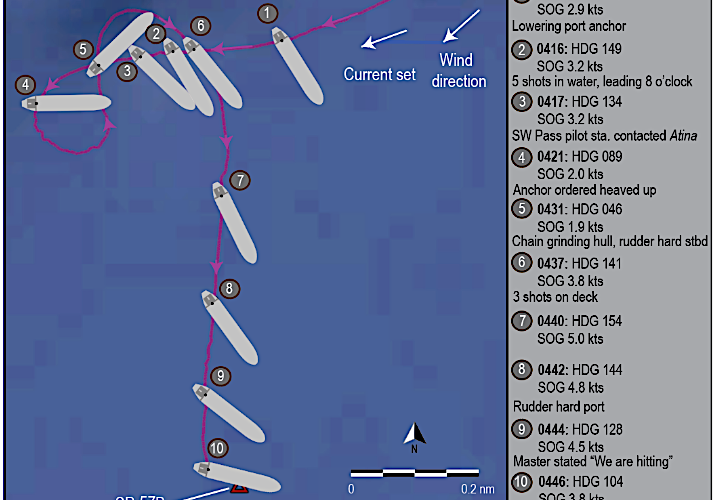(WASHINGTON) — A tanker operating company’s decision to change masters without a handover period led to a $72.9 million marine accident, according to National Transportation Safety Board (NTSB) Marine Accident Brief 21/24.
The brief details the NTSB’s investigation of the Oct. 17, 2020, striking of the oil and gas production platform SP-57B by the tanker Atina near Pilottown, La. Atina, with a crew of 21, was attempting to anchor in the Southwest Pass Fairway Anchorage in the Gulf of Mexico when it struck the platform. The platform’s four crewmembers and one technician evacuated to a nearby platform by helicopter after activating the emergency shutdown device for wells at SP-57B.
No pollution or injuries were reported. Estimated damage to the platform ($72.3 million) and ship ($598,400) totaled $72.9 million.

In its report, the NTSB says the operating company did not comply with its own safety management system (SMS). The arriving master boarded the underway vessel outbound to the anchorage, only seeing the departing master on the tanker’s deck. The company placed the arriving master into critical vessel evolutions, such as navigating downriver and anchoring at night, without any overlap with the departing master. The company’s SMS required a minimum one-day turnover between senior personnel aboard a company vessel if the oncoming senior person worked for the company, and seven days if the senior person was new to the company.
According to the report, the arriving master told investigators he wanted to anchor the ship as soon as possible because he was tired. The arriving master traveled from Turkey to join the vessel and told investigators he had no sleep for over 50 hours while traveling. The location he chose did not follow the passage plan’s anchoring location. According to Atina’s passage plan, the tanker’s intended anchorage was about 3.2 miles northeast of SP-57B. The actual anchoring location was about 0.7 miles from platform SP-57B.
Investigators determined the probable cause of the contact of Atina with the oil and gas production platform was Atina’s operating company not ensuring sufficient time for the master’s turnover, which resulted in the master’s acute fatigue and poor situation awareness during an attempted nighttime anchoring evolution.
“Vessel operating companies should ensure that joining crewmembers/personnel are given the opportunity to obtain a sufficient handover period and adequate rest before taking over critical shipboard duties, such as navigation, that could impact the safety of crew, property, and the environment,” the report said. In this case, “an overlap would have allowed for the incoming master to rest and receive his counterpart’s handover information.”
– National Transportation Safety Board

